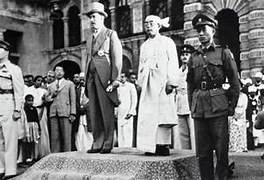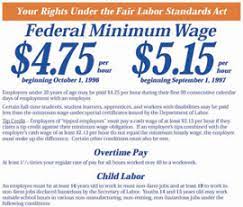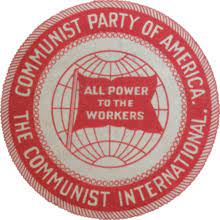On September 19, 1952, one of the most iconic figures in film history, Charlie Chaplin, was refused entry back into the United States. This event marked a significant moment in Chaplin's life, as he had been living in the United States for over 40 years and had achieved worldwide fame for his contributions to the film industry.
Charlie Chaplin, a British-born actor, comedian, and filmmaker, had become a beloved figure in the United States, known for his iconic character, "The Tramp." He had achieved remarkable success throughout his career, with films such as "The Kid," "City Lights," and "Modern Times" earning critical acclaim and commercial success.
However, during the early 1950s, the political climate in the United States was marked by the Red Scare and anti-communist sentiments. Chaplin, who had been an outspoken critic of fascism and had expressed left-leaning political views, became a target of the House Un-American Activities Committee (HUAC).
The HUAC accused Chaplin of having communist sympathies and being a threat to national security. Although Chaplin denied these allegations, his personal life and political beliefs were scrutinized. The government claimed that his refusal to support the war effort during World War II and his connections to left-wing organizations made him a potential risk.
In 1952, while Chaplin was in Europe promoting his film "Limelight," he received word that his re-entry permit to the United States had been revoked. The decision was made by the Immigration and Naturalization Service (INS) based on the allegations against him. This effectively meant that Chaplin, who had been living in the United States since 1910, was not allowed to return.
Chaplin's exclusion from the United States caused an uproar in the international community and among his supporters. Many saw it as a violation of his rights and an unjustifiable act of censorship. Chaplin was a cultural icon and had made significant contributions to the film industry, and his exclusion was seen by many as a political move rather than a legitimate security concern.
Chaplin decided to settle in Switzerland with his family and continued to make films outside the United States. Despite being barred from his adopted home, he remained active in the film industry and continued to receive accolades for his work. In 1972, he was finally allowed to return to the United States to receive an honorary Academy Award, marking a significant moment in his relationship with the country.
The refusal of entry to Charlie Chaplin on September 19, 1952, was a controversial decision that had a lasting impact on his life and career. It served as a stark reminder of the political climate of the time and the restrictions placed on individuals who were perceived as having left-leaning political beliefs. Chaplin's exclusion from the United States was a reflection of the complexities and controversies surrounding the Red Scare era and the impact it had on the lives of many individuals in the entertainment industry.
Today, Charlie Chaplin is remembered as one of the greatest filmmakers of all time, and his contributions to cinema continue to be celebrated. The events of September 19, 1952, when he was refused entry back into the United States, highlight the challenges faced by artists and individuals during politically charged periods and serve as a reminder of the importance of upholding freedom of expression and protecting civil liberties.






